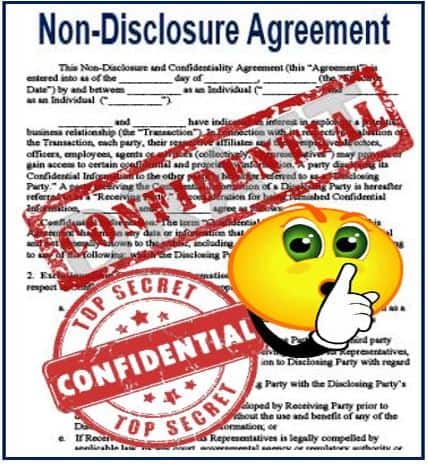The term confidential comes up everywhere, from business, legal, and even in medicine. It essentially means something that is private or secret and is not to be disclosed or shared without permission. Anything marked as confidential means that keeping information out of the public domain and only sharing it with those who are allowed is expected, and often legally required.
The Oxford Reference Dictionary has the following definition of confidentiality:
“The process of and obligation to keep a transaction, documents, etc., private and secret, i.e., confidential; the right to withhold information, e.g. medical information, from others.”
Why is it important?
Why is confidentiality so important? The following will help you understand why:
- Trust
In a lot of relationships, not only professional, trust is very important. Keeping something confidential assures involved parties that their private information is safe.
- Legal Implications
There are rules and regulations that require the confidentiality of certain data in many different areas. Breaches may result in legal consequences.
- Ethical Standards
For a lot of individuals, keeping something confidential is not only a legal obligation but also an ethical one.
- Protecting sensitive information
Confidentiality makes sure that sensitive and personal information prevents any form of misuse by not getting into the wrong hands.
Where you’ll encounter confidentiality
- Medical settings
Medical professionals can’t reveal their patients’ health information without their explicit permission.
- Legal environment
Confidentiality in communications between a lawyer and their client is guaranteed under attorney-client privilege.
- Business and corporate world
Businesses frequently hold sensitive information that has to be secured, such as trade secrets and employee personal data. NDAs (non-disclosure agreements) are common in the world of business.
- Psychologist
A psychologist is ethically bound to protect your privacy regardless of what information you share with others. If the psychologist fears for their client’s safety or life, or the lives of other people, they may inform the police.
- Education
Schools and educational institutions preserve the confidentiality of student records.

Confidentiality in the modern era
Nowadays, keeping something confidential can be so much harder than it used to be, thanks to:
- Cybersecurity threats
The risk of cyberattacks and data breaches has grown because so much personal data is stored digitally.
- Social media
Now, an individual can share something on social media so easily that it can potentially lead to an accidental breach of confidentiality
Written by Nicolas Perez Diaz, October 26, 2023.
